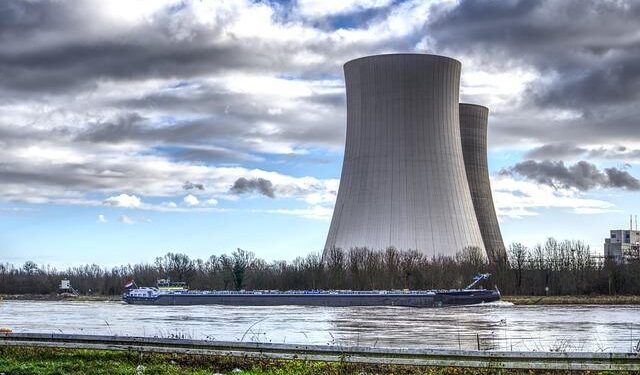In a significant political move, the Spanish Parliament has approved a controversial proposal to reverse the country’s long-standing nuclear phase-out policy, a decision that could reshape the country’s energy landscape amidst rising concerns over energy security and climate change. The vote, which reflects a growing recognition of nuclear power’s potential role in achieving sustainability goals, has sparked a heated debate among lawmakers, environmentalists, and energy advocates. As Spain grapples with the challenges of energy dependence and the urgent need to reduce carbon emissions, this pivotal shift marks a crucial juncture in the nation’s energy strategy, positioning nuclear energy once again at the forefront of the energy conversation. With implications for both domestic energy policy and international commitments to renewable sources, the approval of this proposal heralds a new chapter in Spain’s approach to nuclear energy.
Spains Historic Shift as Parliament Endorses Nuclear Energy Revival
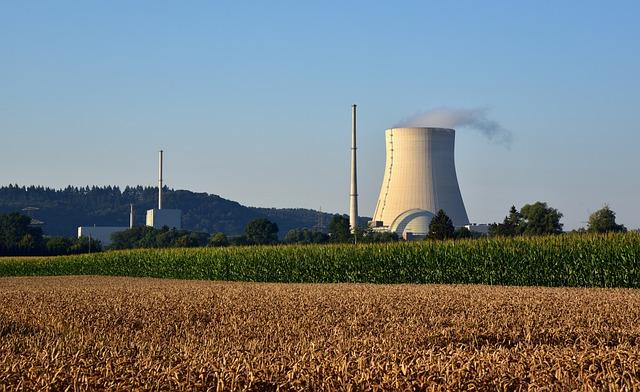
In a significant turn of events, Spain’s parliament has officially backed a proposal that seeks to reverse the long-standing nuclear phase-out initiated two decades ago. This landmark decision stems from a growing recognition of nuclear energy’s potential as a lasting solution to meet rising energy demands while combating climate change. Key considerations influencing this shift include:
- Energy Security: Diversifying energy sources to reduce dependency on fossil fuels.
- Economic Viability: The nuclear sector promises job creation and technological advancement.
- Environmental Benefits: nuclear power produces minimal greenhouse gas emissions, aiding in climate goals.
This legislative backing comes amidst heightened concerns over energy shortages and rising electricity prices across Europe. Supporters of the move assert that reinvigorating the nuclear industry will not only bolster Spain’s energy independence but also position the country as a leader in sustainable energy within the European Union. To illustrate the impact of this policy shift, the following table outlines the projected benefits:
| Benefit | Description |
|---|---|
| Job Creation | Expected to generate thousands of jobs in engineering, construction, and maintenance. |
| Investment | Attracting domestic and foreign investments into Spain’s energy sector. |
| Emission Reductions | Contributing to the EU’s climate targets by lowering carbon footprint. |
Understanding the Rationale Behind the Reversal of the Nuclear Phase-Out
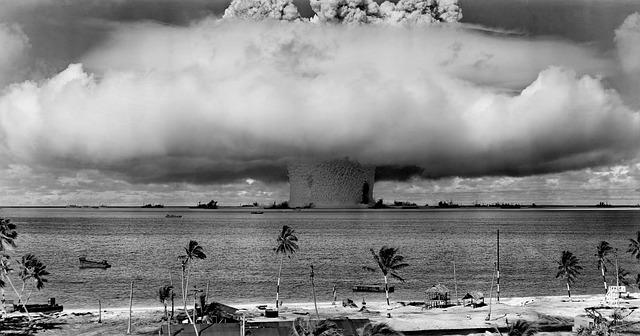
The decision to reverse Spain’s nuclear phase-out reflects a broader reevaluation of energy policies in the face of escalating climate concerns and energy security challenges. This shift is grounded in several critical factors:
- Climate Goals: As nations commit to reducing greenhouse gas emissions, nuclear power is recognized as a low-carbon energy source capable of meeting large demands without compromising sustainability objectives.
- Energy Independence: The ongoing geopolitical landscape has highlighted the necessity for countries to achieve energy autonomy.Reinstating nuclear energy plays a pivotal role in reducing reliance on fossil fuel imports.
- Technological Advancements: Recent innovations in nuclear technology have significantly improved safety protocols and efficiency, making it a more attractive option compared to older models.
Additionally,the economic implications of maintaining a nuclear fleet cannot be overlooked. The potential for job creation,particularly in the engineering and maintenance sectors,represents a vital aspect of the new approach to nuclear energy. Furthermore, the anticipated stability of energy prices, alongside the reduction of carbon footprints, supports the argument for a robust and diversified energy portfolio. Key considerations include:
| Factor | Impact |
|---|---|
| Job Creation | Increased employment in nuclear engineering and construction sectors. |
| Energy Stability | Reduced price volatility and supply disruptions. |
| Carbon Reduction | Lower emissions contributing to climate change mitigation. |
Potential Economic Benefits of Reactivating Nuclear Power in Spain
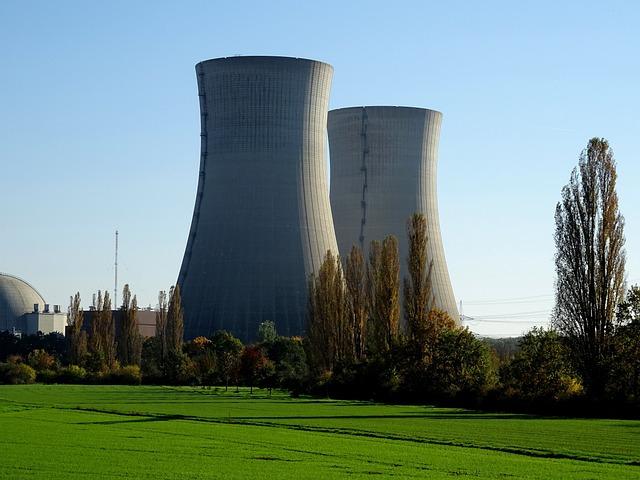
The decision to reactivate nuclear power in Spain presents a multitude of economic advantages that could significantly bolster the country’s energy landscape. One of the most prominent benefits is the potential for job creation in various sectors associated with nuclear energy, ranging from engineering and construction to operations and maintenance. As nuclear facilities ramp up production, employment opportunities for skilled workers will increase, helping to mitigate unemployment rates in regions affected by energy sector transitions. Additionally, reactivation may lead to improved energy independence, reducing reliance on imported fossil fuels and insulating the economy from volatile global energy prices.
Moreover, the economic viability of nuclear power is underscored by its ability to produce low-carbon energy, aligning with Spain’s climate goals while also fostering technological advancements. By investing in nuclear technology, Spain could stimulate research and innovation, possibly placing the country at the forefront of the global energy transition. An anticipated increase in energy stability may arise from the consistent base-load power generation that nuclear plants provide, creating a favorable environment for attracting new investments across various industries:
- Manufacturing
- Technology
- Transportation
Addressing Environmental Concerns in the Nuclear Energy Debate
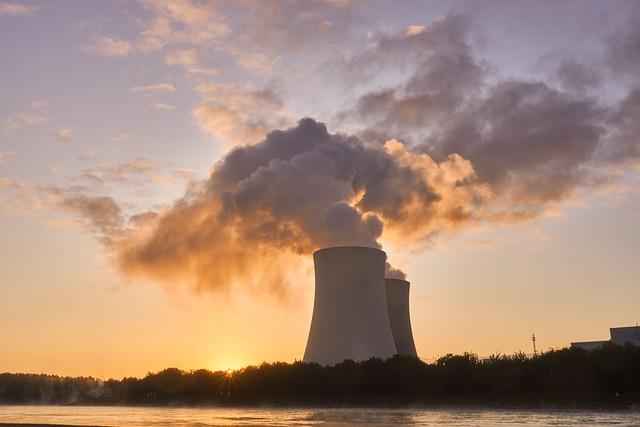
The debate surrounding nuclear energy frequently enough revolves around its environmental implications, particularly in the context of climate change and sustainability.Proponents of nuclear energy argue that it is a low-carbon energy source, significantly reducing greenhouse gas emissions compared to fossil fuels. This aspect is crucial considering Spain’s commitment to achieving carbon neutrality by 2050. The nuclear industry has emphasized the potential of advanced reactor designs that not only minimize waste but also improve safety measures,thereby addressing public concerns about environmental impacts. Additionally, the lifecycle analysis of nuclear energy shows that while the initial construction and decommissioning phases entail environmental costs, the operational phase offers significant benefits in terms of reducing reliance on carbon-intensive energy sources.
Conversely, critics highlight the risks associated with nuclear waste, the potential for catastrophic accidents, and the long-term environmental impact of nuclear power stations. Addressing these concerns is key to shifting public perception and policy. Effective strategies may include:
- Investing in advanced waste management technologies
- Implementing rigorous safety protocols
- Engaging local communities in decision-making processes
To underline the significant environmental advantages of nuclear energy in the context of Spain’s changing energy policy, the following table summarizes the carbon footprint of different energy sources:
| Energy Source | CO2 Emissions (g/kWh) |
|---|---|
| Nuclear | 12 |
| Natural gas | 450 |
| Coal | 900 |
| Wind | 11 |
| Solar | 40 |
Expert Opinions on the future of Nuclear energy in Spain

As Spain gears up for a potential pivot towards nuclear energy,experts are weighing in on the implications of this significant shift. With the recent parliamentary approval to reconsider the nuclear phase-out, voices from the energy sector are discussing the dual role nuclear power could play in Spain’s energy future. Key perspectives include:
- Energy Security: Nuclear energy is touted for its ability to provide a stable and reliable energy source that can bolster Spain’s energy independence.
- Carbon Neutrality Goals: Experts emphasize that nuclear power can be a crucial component in helping Spain achieve its climate targets, given the high carbon reduction potential compared to fossil fuels.
- Public Perception: Analysts note that public acceptance of nuclear energy will be pivotal, with education playing a crucial role in dispelling myths and fears surrounding the technology.
Additionally, the conversation highlights the challenges Spain may face as it navigates this transition. Investment in modernizing existing plants and ensuring the highest safety standards will be vital. The benefits must be weighed against potential public opposition and environmental concerns. A recent roundtable discussion among industry leaders produced the following insights:
| Area of Focus | Expert Insight |
|---|---|
| Infrastructure Needs | Investment in infrastructure modernization is essential for nuclear safety. |
| Job Creation | Nuclear expansion could lead to thousands of new jobs in the sector. |
| International Collaboration | partnering with other nations can enhance technology transfer and best practices. |
Recommendations for a Comprehensive Nuclear Policy Framework

As Spain contemplates a pivot from its nuclear phase-out, a robust and holistic approach to nuclear energy policy becomes imperative. Comprehensive strategies should include a focus on safety, sustainability, and community engagement. It is indeed essential that stakeholders consider the following key elements:
- Safety Regulations: Establishing rigorous safety standards and protocols to ensure nuclear facilities operate well within acceptable risk parameters.
- Waste Management Solutions: Developing long-term strategies for nuclear waste disposal that prioritize environmental protection and public health.
- Investment in Research: Encouraging technological advancements in nuclear energy,including next-generation reactors and safety technology.
- Public Engagement Initiatives: Fostering transparency and interaction with communities to address concerns and encourage public trust in nuclear energy initiatives.
Moreover, the integration of nuclear power within a broader energy strategy necessitates a clear framework for evaluating energy needs against environmental goals. A proposed outline for this policy framework could include:
| Policy Area | Focus | Expected Outcomes |
|---|---|---|
| Regulatory Framework | Enhance oversight and compliance mechanisms | Improved safety and public confidence |
| Infrastructure Investment | Upgrade existing facilities and invest in new technology | Increased efficiency and reduced emissions |
| Collaboration with stakeholders | Engage with industry, government, and public | Shared obligation and enhanced cooperation |
In Retrospect
the recent approval by the Spanish parliament to reverse the country’s nuclear phase-out marks a significant turning point in Spain’s energy policy. As the world grapples with the dual challenges of energy security and climate change, this decision highlights a growing recognition of nuclear power’s potential role in achieving a low-carbon future. Supporters argue that reinstating nuclear energy can enhance energy independence and stabilize the grid, while critics raise concerns about safety and waste management. As Spain embarks on this new chapter, the implications of this policy shift will be closely watched both domestically and internationally, sparking ongoing debates about the future of nuclear energy in the global landscape. As developments unfold, it remains crucial to balance environmental considerations with energy demands in the quest for sustainable solutions.


